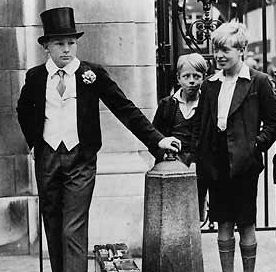| The Arts, the Nation & the State |
Culture in the Senedd |
| Seven Policy-Makers , the Arms Length Principle of Funding the Arts , October 16, 2019 |
 The domain of the arts is civil society. The state is not the nation, the government is not the people. Hence the principle of separation of government and arts policy-making.
The domain of the arts is civil society. The state is not the nation, the government is not the people. Hence the principle of separation of government and arts policy-making. From the outset: NATIONAL ARCHIVES OF WALES, ABERYSTWYTH “The Welsh Arts Council (WAC) was established by Royal Charter in 1946. In 1994, the Council merged with the three Welsh regional arts associations to create the Arts Council of Wales (ACW). “At the same time the Arts Council of Great Britain separated its responsibilities for England, Wales, Scotland and Ireland. It was set up by Royal Charter, with four main objectives, to develop and improve the knowledge, understanding and practice of the arts; to increase the accessibility of the arts to the public; to advise and co-operate with other public bodies; and to work through the medium of Welsh and English.” ROBERT HEWISON “On 6 March 1940 the Council for the Encouragement of Music and the Arts made a formal request to the Treasury for financial assistance. The terms of this memorandum established the fundamental confusion of purpose that was to bedevil the public funding of the arts in Britain. “First clause of the Memorandum committed CEMA to the “preservation in wartime of the highest standards in the arts of music, drama and painting” and the second “the widespread provision of opportunities for hearing good music and the enjoyment of the arts generally.” RAYMOND WILLIAMS “The British State has been able to delegate some of its official functions to a whole complex of semi-official or nominally independent bodies because it has been able to rely on an unusually compact and organic ruling class. Thus it can give Lord X or Lady Y both public money and apparent freedom of decision in some confidence, subject to normal procedures of report and accounting, that they will act as if they are indeed state officials. “It is the incompetent political and administrative reflection of both confused and definitions and arts. The consequent muddle through its consensual tone has led to repeated attempts to accept the muddle, to take it as something that has to be lived with. There is one kind of duty to sustain their high quality; there is another kind of duty to make the best work generally accessible.” ARNOLD GOODMAN, Chair of the Arts Council of Great Britain from 1965-1972, a period generally regarded as a golden age. “I knew that Harold Wilson had sensed- with remarkable discrimination- that Jennie Lee was a woman who loved the arts and loved still more the opportunity of bringing them in their best. "It was not necessary for us to define the respective functions of the Department and the Arts Council. She did not get in the way and she did not allow her minions to get in the way. We therefore deceived ourselves that an arrangement empirically excellent was theoretically so. It required a situation where the two principal figures did not operate in sympathy, had divergent notions and divergent objectives, to demonstrate the difficulties of an Arts Council of present-day character operating under the canopy of a ministry. “If the Arts Council operates as it should, it has no need of ministerial control and no means of conforming to it. "The Minister's function is to provide the money, to seek to procure the greatest amount possible and, in discussion with the chairman, to learn of the intended policy and if necessary to express his views. But his views can have no greater cogency than any member of the Council and probably less since they are not aired at the relevant moment of discussion. “...A large independent body of people who rate him as a useful animal for finding money, respect him if he finds it in greater abundance than hitherto, but have no real use for his views on artistic matters, since they have a duty to base their views on the best professional and public opinions that obtain. The Minister's tiny circle of advisers can show no such expertise. “The Minister should exercise only the restricted functions that an autonomous Council assigns to him. “It does not accept, and I hope never will, government direction as to the utilisation of its money, and how to promote the arts. It does not impose on its beneficiaries any direction that trammels the use of that money, except so as to ensure proper financial controls, economies and the best spread. [Of Lord Eccles, Minister for the Arts 1970-1973, who replaced Jennie Lee.] “Not only did he lack any particular affection for artists, but he regarded them as members of a community who could be dealt with on a summary basis. Knowing little about the theatre, Eccles was firmly convinced it was a cesspool.” LORD WILLIAM REES-MOGG Chairman of the Arts Council of Great Britain 1982-1989 “The principle that the arts like education, health and social security, are universal goods” ROY SHAW Secretary-General of the Arts Council of Great Britain 1975-1983 on his Charman, Lord Rees-Mogg “undesirably close to the policy of the government” MARGARET THATCHER to Richard Luce, Minister of State for the Arts, 1985-1990 “Why do we keep on giving money to ghastly people like Peter Hall?” Sources National Archives: http://www.archiveswales.org.uk/anw/get_collection.php?inst_id=1&coll_id=78016&expand= Robert Hewison: “Culture and Consensus” Methuen 1995 Raymond Williams: “Resources of Hope: Culture, Democracy, Socialism” Verso 1989 Arnold Goodman: “Tell Them I'm On My Way” Chapmans, 1993 Roy Shaw: Cited in Hewison above Margaret Thatcher: http://www.theatre-wales.co.uk/reviews/reviews_details.asp?reviewID=4276 |
Reviewed by: Adam Somerset |
This review has been read 1329 times There are 27 other reviews of productions with this title in our database:
|
